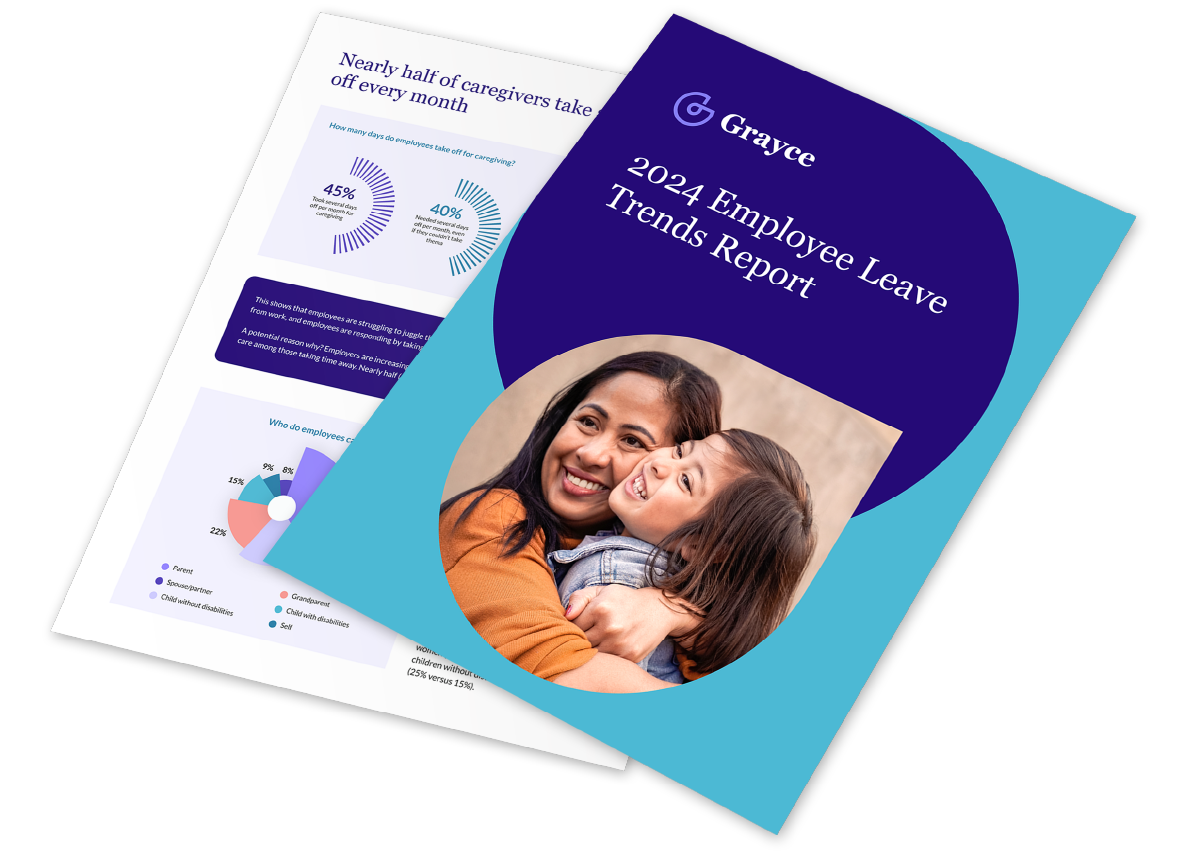2024 Employee Leave Trends
Will they stay or will they go? Despite more flexible work arrangements, the number of employees taking time off work for caregiving continues to rise. Grayce’s latest research explores root causes, and how employers can better support this growing population.

73% of employees work a second shift as a caregiver
As life expectancy increases and young adults grapple with financial independence, nearly 1 in 4 U.S adults is now part of the “sandwich generation,” providing support for both children and parents over longer periods of time.
Who do employees care for?
- Parent
- Spouse/Partner
- Child without disabilities
- Grandparent
- Child with disabilities
- Self
Nearly half take several days off of work every month for caregiving
Juggling these dual roles is placing pressure on employees, who report feeling overwhelmed, and needing time off to manage these responsibilities.

What is the impact on work/life balance?
The stress causes many to consider quitting, rather than taking leave
Employee caregivers are at high risk of turnover, when taking time away alone does not meet their needs.

How does caregiving impact retention?
57%
of caregivers have considered leaving the workforce
3.4X
the increased likelihood of quitting during a leave of absence
Added employer support for care needs can prevent or reduce time away
Employees need more than flexibility; they need help lightening both the physical and mental load of navigating care at all life stages.

What do caregivers need from employers?
- Time away with job security
- Flexibility
- Access to financial resources
- Professional caregiver to physically be present
- Access to relevant and available benefits
- Planning with support from a licensed professional
When do they need employer support?
of caregivers say that proactive support for their needs would help avoid or reduce time away from work
Employers must think more holistically about caring for caregivers
As the sandwich generation expands, employers must consider caregiving proactively, and as an ongoing, not a temporary, concern to both attract and retain talent.
Learn more about how caregiving is impacting your workforce
